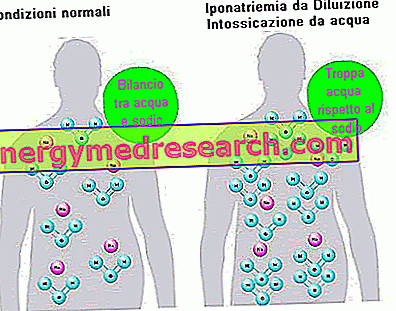Definition
The term proctorrhagia (or rectorragia) indicates the emission of bright red blood from the anus, which can occur during defecation, or after or independently of it.
In general, in the rectorrhagia - as indeed the term itself recalls - the blood has rectal or sigmoid origin. However, the rectorrhagia may also depend on bleeding that drains into the rectum but does not originate from it (eg a carcinoma of the uterus).
Being at this level the faeces already formed, in the rectorragia associated with defecation the blood externally brushes the feces; vice versa, when the blood is mixed with them the haemorrhage took place in "higher" sites than the left transverse colon.
Another important feature of the rash is that the blood expelled from the anus has a bright red color. The presence of a darker blood is instead the expression of a hemorrhage that has taken place in the upper digestive sites (see in this regard the insights dedicated to picee, melena and hematochezia). This general rule does not include the upper bleeding associated with an accelerated intestinal transit, which can cause the emission of faeces mixed with red blood.
Blood streaks in toilet paper, associated with intense anal pain during defecation, are a typical sign of anal fissures.
Rectorrhagia is one of the most common symptoms of hemorrhoidal disease, commonly called hemorrhoids. However, in the presence of anal bleeding it is good to make sure that this does not have a more serious cause, such as some forms of colorectal cancer.
Red stools can also be related to the abundant consumption of red colored foods (tomato juice, red fruit and beetroot).
Possible Causes * of Corruption
- amebiasis
- angiodysplasia
- Ischemic colitis
- Ulcerative colitis
- Diverticulitis
- Meckel's diverticulum
- Hemorrhoids
- Gastroenteritis
- Crohn's disease
- Intestinal polyps
- Anal fissures
- Salmonella
- Colorectal cancer
- Ovarian cancer



